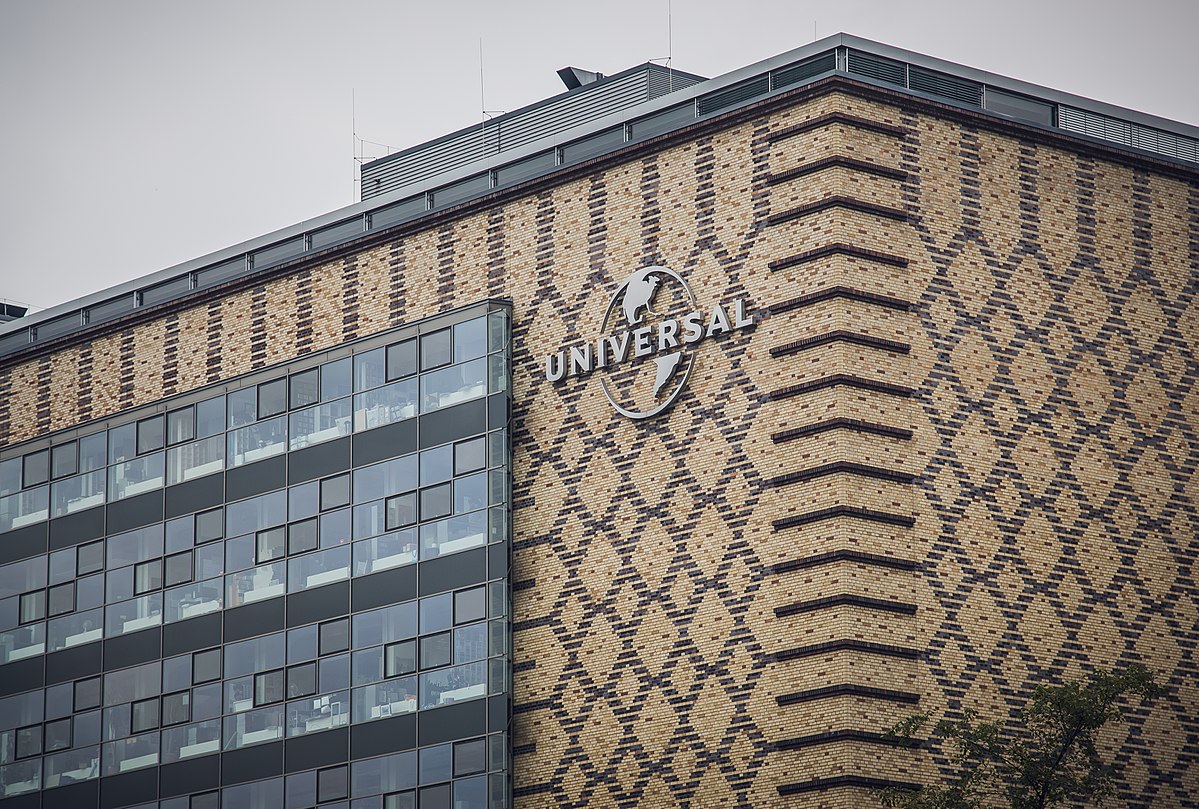Universal Music Group pulls music from TikTok after licensing agreement expires

A view of the Universal Music Publishing office in Berlin. WIKIMEDIA COMMONS/Tony Webster
Feb. 6 (ZFJ) — Universal Music Group, the world’s largest music corporation, has pulled all of its music from TikTok following the expiration of its previous licensing agreement on Jan. 31 after renewal talks collapsed.
That means that any TikToks containing music from Taylor Swift, Bad Bunny, The Weeknd, Drake, Harry Styles, and many, many more artists have had their audio muted. Until a new licensing agreement is finalized, TikTok users won’t be able to add any music from Universal’s catalog to their videos.
This repertoire of the world’s most popular songs is integral to TikTok, which is known for its short videos with music in the background, and users have expressed frustration over the situation.
In an open letter to artists, Universal criticized TikTok’s handling of appropriate compensation for artists, protection for artists from artificial intelligence’s harm, and online safety for TikTok users.
Universal said that TikTok proposed paying its artists “a rate that is a fraction of the rate that similarly situated major social platforms pay.”
“Ultimately, TikTok is trying to build a music-based business without paying fair value for the music,” Universal wrote.
The music company raised concerns about the prevalence of AI-generated music on TikTok and the platform’s experimentation with tools to allow users to generate music with AI. Universal said TikTok wanted “a contractual right which would allow this content to massively dilute the royalty pool for human artists in a move that is nothing short of sponsoring artist replacement by AI.”
Universal additionally said that “TikTok makes little effort to deal with the vast amounts of content that infringe our artists’ music, and it has offered no meaningful solutions to the rising tide of content adjacency issues.” The company decried the platform’s “cumbersome” process to deal with content violating the platform’s community guidelines.
Universal accused TikTok of attempting to intimidate it into accepting “a deal worth less than the previous deal, far less than fair market value and not reflective of their exponential growth” by “selectively removing the music of certain of [its] developing artists while keeping on the platform [its] audience-driving global stars.”
“We will always fight for our artists and songwriters and stand up for the creative and commercial value of music,” Universal said in its letter’s conclusion.
TikTok pushed back against Universal’s allegations, saying that the music company put its “own greed above the interests of their artists and songwriters.”
“Despite Universal’s false narrative and rhetoric, the fact is they have chosen to walk away from the powerful support of a platform with well over a billion users that serves as a free promotional and discovery vehicle for their talent,” TikTok said in a statement, adding that it “has been able to reach ‘artist-first’ agreements with every other label and publisher.”
Universal has previously taken action on AI-generated music, including lawsuits, ordering the takedown of an AI-generated Drake and The Weeknd song, and partnering with YouTube to establish AI music principles.
While there’s no word yet on when TikTok’s drought of Taylor Swift music will end, it’s unlikely it’ll last forever—both Universal and TikTok stand to benefit from reaching a licensing agreement. The present question is who will make the concession.
References
- Universal Music Group - Universal Music Group Agreement with TikTok to Expire on January 31, 2024 - https://tools.eurolandir.com/tools/Pressreleases/GetPressRelease/?ID=4450817&lang=en-GB&companycode=us-umg&v=dark (ARCHIVE)
- Universal Music Group - An Open Letter to the Artist and Songwriter Community - Why We Must Call Time Out on TikTok - https://www.universalmusic.com/an-open-letter-to-the-artist-and-songwriter-community-why-we-must-call-time-out-on-tiktok/ (ARCHIVE)
- TikTok - TikTok statement in response to Universal Music Group - https://newsroom.tiktok.com/en-us/tiktok-statement-in-response-to-universal-music-group (ARCHIVE)
